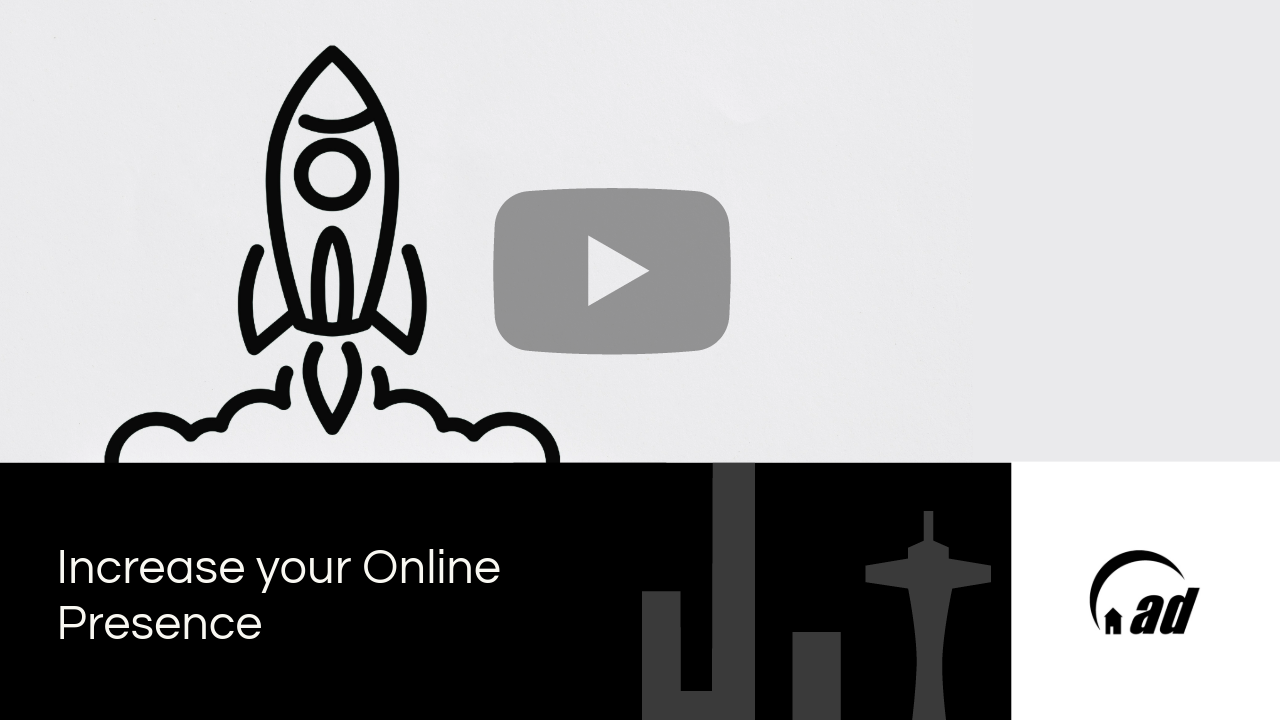Unlock the Secrets of Successful Pay Per Click Ads: A Comprehensive Guide to Starting, Budgeting, and Maximizing Profitability
In the ever-evolving world of digital marketing, Pay Per Click (PPC) advertising stands out as a super powerful tool for driving targeted traffic and generating measurable results. Whether you're a fantastic, seasoned marketer or just embarking on your advertising journey, mastering PPC is the skeleton key to unlocking your brand's full potential.
In this comprehensive guide, we'll explore the foundational elements you need to start a successful PPC campaign. From gathering critical setup information to determining your optimal budget allocation to understanding what makes an ad profitable, you'll gain insights that can transform your strategy and boost your return on investment.
Join us as we delve into the nuances of PPC advertising, revealing the hidden secrets that propel your marketing efforts to super-new heights of success and profitability.
Understanding Pay Per Click Advertising
Peeking into the mechanics of a pay-per-click ad, we find an artful dance. Google Ads is the titan in this arena, orchestrating the interplay between bid amounts and ad quality. Our PPC campaigns rely heavily on keywords. These gems guide paid search efforts, influencing PPC ads' cost and efficacy. As digital marketing experts, we're ever curious about how search engine land shapes our strategies.
Differences Between PPC, SEM, and SEO
Let's explore the distinctions of PPC, SEM, and SEO. Our primary focus, Pay Per Click Ads, involves paying for each click, offering instant visibility. SEM combines both PPC and SEO techniques, broadening our strategy. SEO, however, emphasizes organic ranking through website optimization. While PPC provides quick results, SEO demands patience for long-term benefits. Balancing these strategies can maximize our digital marketing results, creating a robust online presence.
How Pay Per Click Advertising Works
Understanding how a pay-per-click ad operates involves considering ad auctions, keyword selection, and quality scores. The key to our success is that Google Ads demands a balance between bid amounts and ad quality. Keywords fuel effective PPC campaigns, making them essential tools in our digital marketing toolkit. We refine strategies by leveraging insights from sites like Google's Search Console, ensuring each paid search effort optimizes our budget and enhances visibility.
Role of Keywords in PPC Campaigns
Keywords are the secret sauce to our PPC marketing success. They steer our Google Ads, ensuring that our paid search efforts reach the right audience. Crafting the perfect keyword list is like baking a cake—get it right, and our PPC campaigns rise to the top. However, a poor choice could crumble results, impacting our quality score and escalating the cost of our PPC ads.
Importance of PPC in Digital Marketing
Navigating the significance of PPC in digital marketing, we see a powerful tool driving results. With PPC ads, we achieve immediate traffic and measurable outcomes. This strategy supports SEO, enhancing brand visibility across channels like Google and social media. Here are key points to consider:
1. Instant visibility
2. Targeted audience
3. Budget control
4. Measurable results
5. Complements SEO
6. Flexible ad formats
7. High ROI potential
Essential Elements of a PPC Strategy
Understanding the essential building blocks of a Pay Per Click ad strategy is something other than rocket science. Our approach focuses on precise keyword research, influential ad groups, and grasping ad auctions. Combine this with a high-quality score, and you have a recipe for success. Leveraging tools like Google Ads can elevate your PPC campaigns. Mastering these elements in the ever-evolving digital marketing arena ensures a competitive edge.
Keyword Research and Selection
Delving into keyword research for a Pay Per Click ad involves identifying precise terms that resonate with target audiences. This process is crucial in balancing ad costs and effectiveness. Leveraging Google Ads and other PPC marketing tools allows us to discover impactful keywords that drive traffic and engagement. For more insights, SEMrush offers valuable resources on paid search strategies and PPC advertising.
Crafting Effective Ad Groups
Setting up ad groups effectively involves organizing related ads and keywords for seamless targeting. This helps improve click-through rates and lower costs. Crafting precise groups ensures relevance, which is crucial to a strong quality score. A well-structured ad group allows us to fine-tune our pay-per-click ad strategy, boosting overall performance. For insights, Google's support page offers comprehensive guidance on managing PPC ads efficiently.
Navigating Ad Auctions
The secret to mastering ad auctions lies in understanding their mechanics. It's not just about the
highest bid. Ad relevance and a stellar quality score play pivotal roles, too. Picture it as a dance where everything needs to sync perfectly. This ensures your pay per click ad is not just visible but cost-effective. Check out
WordStream's article for insights on managing PPC ads' costs.

Importance of Quality Score
Why does a high-quality score matter for a pay per click ad? It significantly affects ad rankings and costs. Higher scores can lower your cost per click while boosting ad visibility. Imagine this: you're getting more bang for your buck! It's not just about spending more money; it's about spending smart. Investing in quality can refine your strategy, creating a ripple effect throughout your digital marketing efforts.
Top Platforms for PPC Advertising
When exploring the leading places for a Pay Per Click ad, Google Ads tops the list. Its search engine prowess delivers unmatched visibility. Facebook Ads follows, with its audience targeting finesse. Microsoft Advertising, LinkedIn Ads, and Amazon Ads also offer stellar options. Each platform provides unique strengths, catering to various digital marketing strategies. Balancing these can boost your paid search outcomes impressively.
1. Google Ads
2. Facebook Ads
3. Microsoft Advertising
4. LinkedIn Ads
5. Amazon Ads
6. Twitter Ads
7. Instagram Ads
Overview of Google Ads
Our take on Google Ads reveals its potent role in pay-per-click ad strategies. This platform is a cornerstone in digital marketing, allowing us to target potential customers effectively. By leveraging PPC marketing tools like Google Analytics and AI research assistants, we can optimize our campaigns for better returns. Think of it as the ultimate guide for navigating the complexities of paid search and achieving a high-quality score.
Insights on Facebook Ads
Exploring insights into Facebook Ads unveils a dynamic world of pay per click ad opportunities. Our approach focuses on leveraging user engagement and precise targeting. With Facebook's vast data, we can effectively pinpoint audiences, enhancing our PPC marketing efforts. Utilizing these insights empowers us as digital marketing experts to achieve high-quality scores. Engagement thrives as we optimize ad placements within the bustling search engine land.
1. Harness audience insights for precise targeting.
2. Use data to refine ad strategies.
3. Optimize for engagement and conversion.
4. Monitor performance metrics closely.
5. Adjust campaigns based on real-time results.
6. Leverage creative visuals.
7. Align messaging with user intent.
8. Experiment with different ad formats.
Benefits of Instagram Ads
One massive advantage of Instagram advertising is its superior targeting. We can zero in on demographics and interests, ensuring our pay per click ad hits the mark. This platform's visual nature enhances engagement, making our products memorable. Plus, the integration with other social media channels amplifies reach. Crucially, Instagram allows us to test various formats, optimizing for performance. Here's a quick list to consider:
1. Audience targeting
2. Visual engagement
3. Brand awareness
4. Cross-platform integration
5. Cost efficiency

Types of PPC Ads Explained
Let's break down different pay per click ad types. Search ads, common in PPC advertising, appear in search engine results. Display ads, on the other hand, showcase on partner websites using images. Social media ads are served to users based on their exact interests and behaviors. Each type has unique targeting capabilities. For insights on PPC marketing tools, SpyFu offers competitive intelligence. By choosing the right platform, we can optimize our digital marketing efforts.
Search Ads and Their Impact
The ripple effect of search ads on a pay per click ad strategy is profound. We see immediate visibility, quick traffic boosts, and measurable outcomes. It's like having a secret weapon in our digital marketing arsenal. Our spotlight shines on relevance and a stellar quality score, ensuring each click is worth the investment. With insights from Search Engine Land, we consistently outpace the competition.
Display Ads: Pros and Cons
Evaluating the benefits and drawbacks of pay per click ad visuals can be insightful. They offer impressive brand visibility and precise targeting in digital marketing. However, they sometimes lack the immediacy of search ad results. Our campaigns often become a balancing act between creative appeal and measurable outcomes. Keeping a keen eye on the quality score is essential as we optimize.
Shopping and Video Ads
Exploring shopping and video promotions unveils a dynamic world of possibilities. With pay per click ads, creativity meets strategy. Video ads captivate with visuals, while shopping ads target intent-driven buyers. Our approach blends these elements, enhancing our digital marketing prowess. As digital marketing experts, we focus on boosting relevance, ensuring our quality score soars. Insights from Search Engine Land guide our decisions, helping us navigate this vibrant advertising space.
Remarketing and Retargeting Tactics
Let's explore tactics for engaging past visitors using pay per click ads. We can leverage retargeting to remind users of items they've previously browsed. By customizing these ads, we boost engagement and conversion rates. A well-timed ad can feel like a friendly nudge, encouraging revisits. According to insights from Wolfpack Advertising blog post, this approach can significantly improve our quality score.

Budgeting for Your PPC Campaigns
Let's talk about planning a budget for pay per click ad efforts. We all know the art of balancing costs with returns is vital. It's about setting priorities and deciding where to channel funds. Allocating resources wisely can lead to better outcomes. For those interested in how these processes integrate with digital marketing, the official Google Ads website offers valuable insights into crafting effective PPC strategies.
Tools for PPC Marketing Success
We need the right gear when aiming for pay per click ad success. Our approach should include advanced tracking tools, ensuring every click is traceable. Engaging visuals and precise targeting enhance our impact. The insights from industry giants like Search Engine Land are invaluable. Let's keep PPC advertising efficient and straightforward, ensuring our marketing efforts succeed. It's about making every click count.
Managing and Optimizing PPC Campaigns
We must be vigilant when managing pay per click ad efforts. Our focus on aligning ad efforts with audience intent is paramount. This involves continuous testing, ad variations, and adjusting bids. Engaging tools enhance PPC marketing efficiency. We maintain a competitive edge by staying informed with insights from our trained AI assistants. Our ongoing analysis ensures that our PPC advertising strategies remain sharp and effective.
Common Challenges in PPC Advertising
Tackling challenges in pay per click ad efforts can feel like a game of whack-a-mole. We face hurdles like fluctuating costs and stiff competition. Sometimes, everyone and their grandma want the top spot. Search Engine Land suggests keeping a close eye on metrics. This helps us adjust strategies on the fly. In PPC marketing, adaptability is our secret weapon.
Advantages and Disadvantages of PPC
Examining the pros and cons of pay per click ads reveals their dual nature. With PPC advertising, we gain quick visibility and targeted reach. Yet, costs can spiral if not carefully managed. Balancing this can feel like walking a tightrope. Insights from Google and other expensive training modules and software guide us, ensuring our efforts in PPC marketing remain effective. Ultimately, understanding how PPC advertising works is crucial to maximizing benefits.
Becoming a Digital Marketing Expert
Embarking on the journey to mastery in digital marketing requires mastering various tools, including pay per click ad strategies. Crafting compelling ads and selecting effective keywords is essential. We must stay nimble, adjusting bids and tweaking ads based on real-time performance data. It's like navigating a maze—each twist leads to better conversions. Let's make every click worth its weight in gold.

Launching a Pay Per Click Ad Campaign
Getting started with a pay per click ad initiative involves strategic planning. We must determine our budget, select target keywords, and create captivating ad copy. Monitoring performance is critical, allowing us to tweak and optimize for better results. It's like cooking a particular dish; experimentation and adjustments lead to success. Understanding how PPC advertising works can save us time and money.
Ideal Ad Budget Percentages Based On Revenue
Balancing ad budget percentages with revenue is like a dance. It's all about strategy and precision. Allocating 5-10% of revenue to pay per click ad campaigns can optimize growth. We recommend adjusting as your business scales. Consider industry standards, but trust your data. This ensures cost-effectiveness and sustainable expansion. Remember, every click counts towards achieving your marketing goals.
Tips On Determining Over Ad Profitability
Determining how profitable a pay per click ad can be elusive. We need to consider the costs, conversions, and return on investment. Monitoring these metrics helps us tweak our strategies. Google emphasizes regular analysis and optimization in their guide. It's like a puzzle; each piece is essential to complete the picture. Let's make sure each click justifies its cost.
Conclusion
Creating successful PPC ads requires a mix of strategic planning, creativity, and data analysis. Crafting compelling ad groups and conducting thorough keyword research with popular software is just the tip of the iceberg. We must dive deeper into understanding ad auctions and recognize the critical role of the Quality Score. These elements directly impact ad placement and cost efficiency.
Budgeting is another crucial aspect. It ensures our campaigns are sustainable and profitable. Setting the correct ad budget percentage based on revenue is like striking gold. It helps us avoid overspending while maximizing returns. Remember, monitoring and adjusting our campaigns is vital. This involves using tools to track performance and make data-driven decisions. It might seem like a lot to juggle, but PPC can be a real game-changer for our digital marketing efforts with the right approach.
FAQ
What is Pay Per Click (PPC) advertising?
A.PPC is a digital advertising business in which firms or advertisers pay a fee each time someone clicks their ad. It mainly involves search engines like Google and social media platforms. Ads appear with search results or on your social media news feeds based on bids for specific keywords and interests. It's a quick way to gain visibility and is cost-effective compared to other strategies.
How does PPC differ from SEM and SEO?
A.PPC is a paid advertising approach. SEM includes paid (PPC) and unpaid (SEO) strategies to increase online visibility. SEO optimizes web content to improve search rankings naturally, without paying for clicks.
How do keywords affect PPC campaigns?
A.Keywords trigger ads when users search for related terms. They are crucial for reaching the right audience. Effective keyword research helps maximize campaign success while minimizing costs. Think of keywords as the bridge connecting ads to potential customers.
What makes PPC important in digital marketing?
A.PPC is essential because it delivers immediate results and measurable outcomes. It complements SEO by providing quick traffic boosts. This approach enhances brand visibility across multiple digital channels, like Google and social media.
What is a Quality Score, and why is it important?
A.Quality Score evaluates ad and landing page relevance. Higher scores lead to better ad positions and lower costs. Maintaining a good Quality Score requires well-crafted ads and user-friendly landing pages. It's like getting a good grade for doing your homework right!








